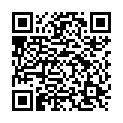|
|
|
| Module code: MFSTM-410 |
|
|
4S (4 hours per week) |
|
6 |
| Semester: 4 |
| Mandatory course: yes |
Language of instruction:
German |
Assessment:
Written composition with presentation (can be repeated annually)
[updated 21.12.2023]
|
MFSTM-410 (P440-0026) Leisure, Sports, Tourism Management, Master, ASPO 01.04.2017
, semester 4, mandatory course
|
60 class hours (= 45 clock hours) over a 15-week period.
The total student study time is 180 hours (equivalent to 6 ECTS credits).
There are therefore 135 hours available for class preparation and follow-up work and exam preparation.
|
Recommended prerequisites (modules):
MFSTM-110 Leisure, Sport and Tourism Studies
MFSTM-150 Empirical Methods in Social Science Research
MFSTM-250 Seminar on Sustainable Economics in the Leisure, Sport and Tourism Sectors
[updated 20.03.2025]
|
Recommended as prerequisite for:
|
Module coordinator:
Prof. Dr. Kerstin Heuwinkel |
Lecturer:
Dozierende des Studiengangs
[updated 20.03.2025]
|
Learning outcomes:
After successfully completing this module, students will be able to:
- analyze a chosen scientific problem from leisure, sports, tourism science, link it to a theory and explain it,
- describe, develop, plan and design processes of application-oriented research and consulting in the leisure, sports, tourism economy,
- express themselves logically, rationally, and persuasively in oral and written forms,
- scientifically substantiate and formulate their research findings in writing and document key results using modern presentation techniques, as well as present them to the group (and third parties, if necessary),
[updated 30.10.2023]
|
Module content:
This course deals with the complex topic of leisure, sports and tourism management. The overall theme will be defined at the beginning of the course.
Examples from the past years were "Innovation in Leisure, Sports, Tourism", "Women and Leisure, Sports, Tourism" and Niches in Leisure, Sports, Tourism.
[updated 30.10.2023]
|
Teaching methods/Media:
Seminar
Case studies (where appropriate, study trips, for example to the ITB in Berlin)
Group work
Discussions with fellow students and third parties
Presentations and preparation of documentation/papers
[updated 30.10.2023]
|
Recommended or required reading:
Depends on the respective topic
You can find links etc. in the Moodle course
[updated 30.10.2023]
|


